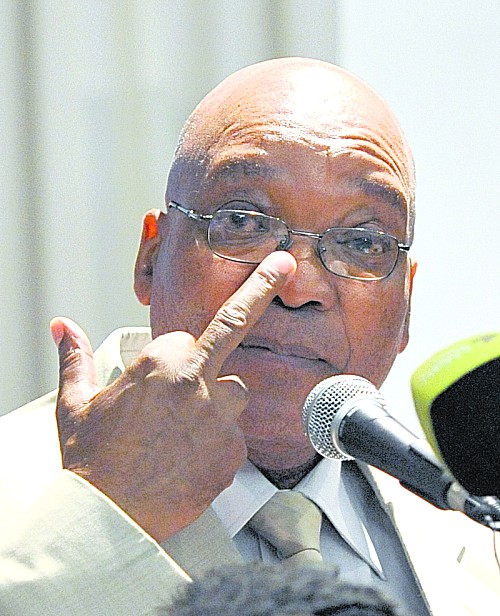Will Jacob Zuma be the big loser after the World Cup whistle?
When the South African president arrives at Buckingham Palace this week, one wonders if the Queen will be aware of what an unusual guest she is hosting, writes Graham Boynton.

When Jacob Zuma arrives at Buckingham Palace for a sleepover this week, one wonders if the Queen will be aware of what an unusual guest she is hosting.
For all the colourful characters who have visited the Palace during her 58 years on the throne, the South African president is possibly the first guest to be a polygamist, probably the first to have faced a multitude of criminal charges including fraud, racketeering, corruption and tax evasion, all of which were later withdrawn, and most certainly the first to have a signature anthem that runs: "Bring Me My Machine Gun."
The current count for the 67-year-old Zuma is five wives, of which three remain (his second divorced him, and his third committed suicide), and at least 20 children. In one of his many extramarital indulgences, he had unprotected sex with a woman who was HIV positive; when asked what precautions he had taken, he said he had taken a shower after the event. He was later charged with rape, and although the court acquitted him, the publicity surrounding the trial was said to have seriously divided the country's ruling African National Congress party.
The financial charges against him were dropped although Schabir Shaik, the businessman who described himself as Zuma's "financial adviser," was sentenced to 15 years in jail (he was recently granted medical parole under conditions intended for the terminally ill, having served only 28 months of his sentence). In the most recent scandal, Zuma admitted to fathering yet another child, born late last year to the daughter of Irvin Khoza, one of the organisers of South Africa's football World Cup. An editorial in Johannesburg's Star newspaper last month said that "his rampant libido has made South Africa a laughing stock of the world".
Yet despite Zuma's reckless behaviour, most South Africans welcomed his ascent to the presidency. The key point in his favour? That he was not Thabo Mbeki, the remote and eccentric technocrat who was president from 1999 to 2008. As one South African analyst said to me this week: "After the dead hand of Mbeki, we thought Zuma would be a breath of fresh air."
Under Mbeki's rule, the shine had come off Nelson Mandela's Rainbow Nation: the post-apartheid optimism and economic buoyancy threatened to give way to yet another African country bogged down by corruption and incompetence, where the promises of better lives for all had been replaced by the reality of great wealth for the few. For South Africa's white population in particular, Mbeki's perceived support for the autocrat on his doorstep, Zimbabwe's Robert Mugabe, sent a shiver down the spine.
The result was that many were prepared to extend a cautious welcome to the priapic Zuma, the son of a Zulu policeman. Certainly, his liberation credentials were impeccable, having spent 10 years on Robben Island with Mandela. And since his and the ANC's inevitable election victory last May, there have been some successes: in the fourth quarter of last year, GDP increased by 3.2 per cent, with the manufacturing sector growing by more than 10 per cent quarter on quarter.
The feeling, then, is that South Africa has rebounded rather spectacularly from the recession, especially with the World Cup forecast to contribute £4.3 billion to the economy.
But the country's underlying problems are still there: unemployment (the official figure is 23 per cent, but sceptics say the real total is much higher); sprawling poverty created partly by mass immigration from South Africa's dirt-poor neighbours; HIV/Aids; and a crime rate that remains one of the highest in the world.
The World Cup will bring a wave of goodwill – although given South Africa's ranking in the Fifa tables, it is unlikely to have the restorative qualities of the victory in the 1995 rugby World Cup, which Mandela used to bind together a host nation that had been prised apart for generations by apartheid.
But once the tournament is over, the political elite will have to buckle down to the business of repairing a dangerously unequal society – and Zuma appears to have no discernable social or economic policies for
doing so.
Allister Sparks, a veteran South African journalist and political analyst, has likened the president to a pricked balloon, and said that "the nation was feeling deflated with him". Sparks claims that Zuma "is already a lame-duck president in the first year of his first term": the various factions within the ANC are waiting until the World Cup is over to take their shots at him, and business leaders are already alarmed by recent remarks that appeared to support Robert Mugabe.
This week, Zuma and the fifth Mrs Zuma have a comfortable bed at the Palace, and a marvellous banquet to attend. They had best enjoy it while it lasts.